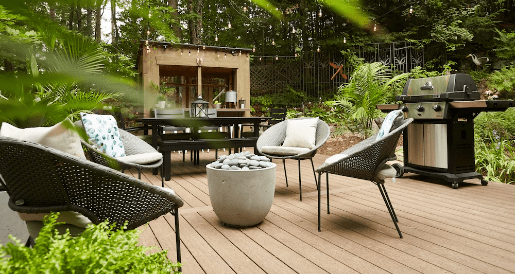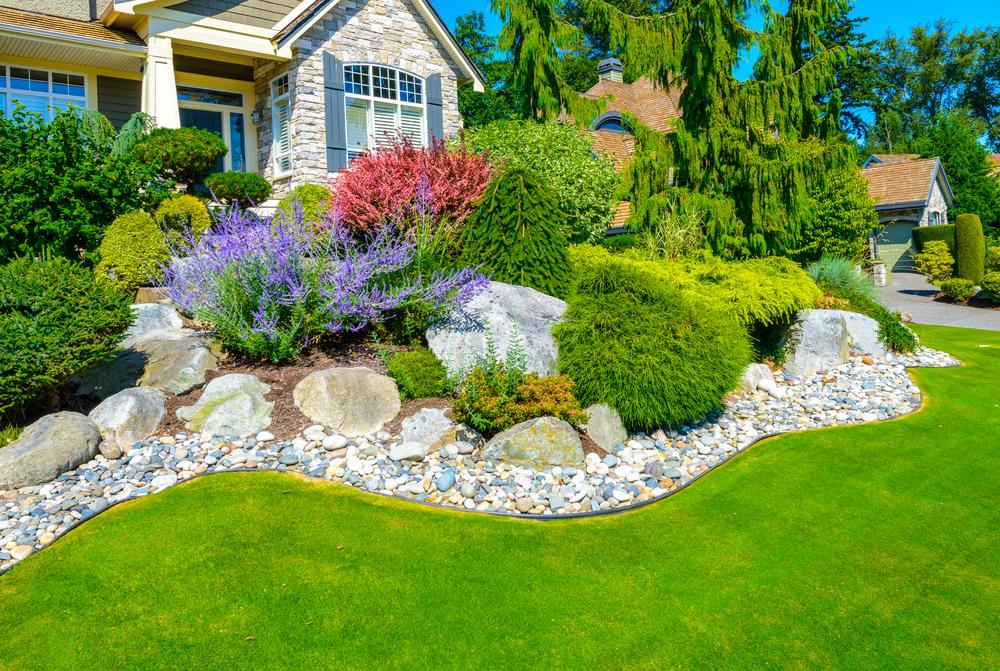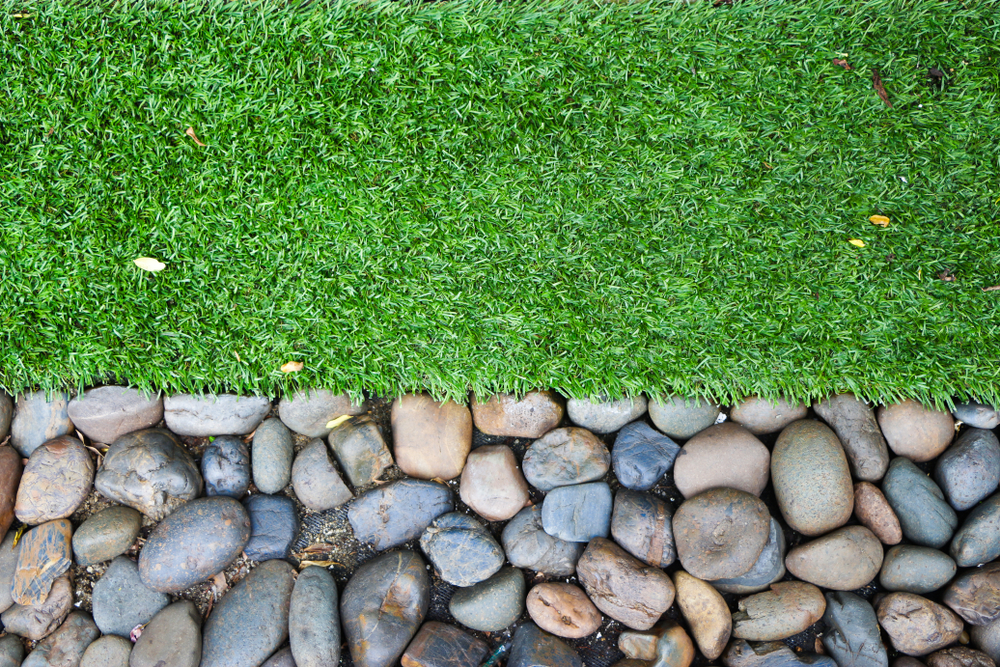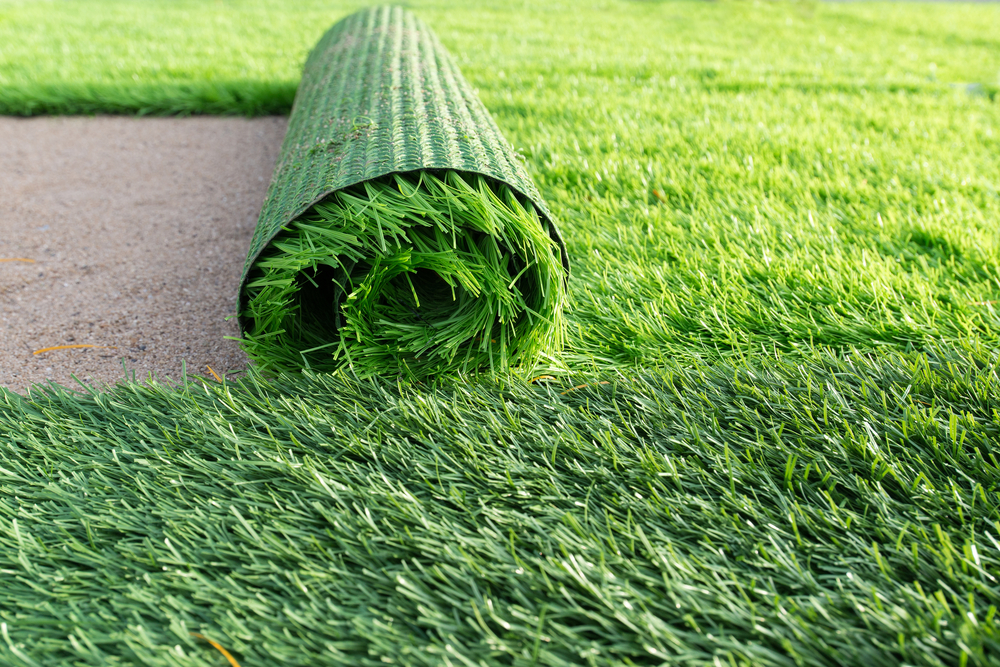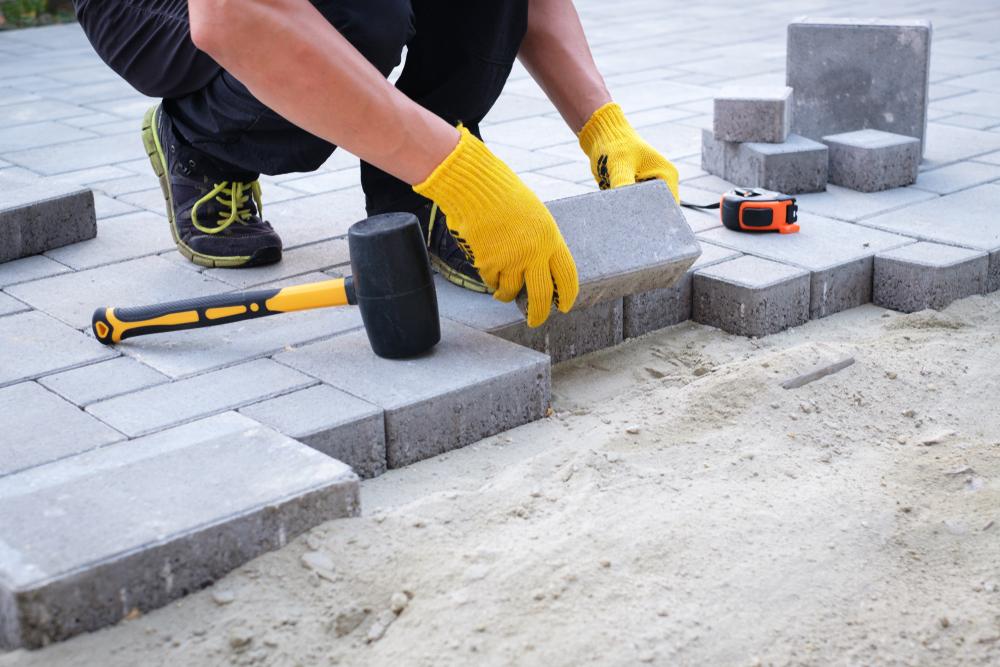
If you’re looking to replace your old driveway or have a new one installed, one factor to think about is whether you prefer concrete vs pavers. While we are obviously partial to pavers, either one can be a great option as both have their own specific benefits and drawbacks. The easiest way to decide between the two is to compare them in terms of important factors like style, durability, and cost, and here is a quick overview to help you do just that.
What Are Pavers?
Pavers are flat slabs that are designed to interlock or be laid in a pattern to create a durable flat surface ideally suited for driveways, walkways, and patios. Although most pavers are made of concrete, you can also find pavers made of brick and even natural stone. Now that you better understand what pavers are let’s look at how using pavers for your driveway compares to concrete.
Design and Style
A concrete driveway will typically always look quite basic and only do a little to increase your home’s value or curb appeal. You can add more style to a concrete driveway by choosing colored concrete or having it stamped in patterns so that it resembles pavers or stones. Still, even stamped, colored concrete typically doesn’t look all that authentic and can’t compare to the beauty and style you get with using pavers.
Pavers allow you much more freedom to create unique looks and styles. You can choose to create cool patterns by contrasting different colors of pavers or a mosaic effect by using pavers of different shapes and sizes. Pavers can also be used to complement your existing landscaping to help boost your home’s curb appeal even more. Read our guide on installing artificial turf here.
Installation and Overall Cost
The price and difficulty of installation are important factors when choosing what type of material you want your new driveway made from. If you’re on a tighter budget, concrete is always the better choice as it takes less time to install and is cheaper than using pavers.
A concrete driveway typically costs between $5 and $15 for each square foot. However, this price is for a basic gray concrete driveway with a standard brushed finish. If you want colored or stamped concrete or some other type of finish, you should expect to pay at least a few dollars more per square foot.
Pavers are often more expensive and will run between $10 and $50 a square foot, depending on the specific type and style of pavers you choose. Not only are the pavers themselves more expensive than concrete per square foot, but the labor costs for installing pavers are also higher since it takes quite a bit more time.
It is important to note that these prices typically don’t include the added cost of demolishing your old driveway and removing the materials. While pavers are more time-consuming to install, they are much quicker and less costly to remove since you don’t need to use a jackhammer to break them apart like you would with a concrete driveway.
Lifespan and Durability
Durability and expected lifespan are two other areas where driveway pavers are far superior to concrete. Although concrete is reasonably sturdy, it is also prone to cracking caused by weather and soil settling or shifting. Even parking on a concrete driveway can eventually lead to cracking as concrete cannot support near the weight that pavers can. Compared to concrete, pavers can typically support around four times as much weight. Another advantage of using pavers is that the joints between each one allow them to shift and move around without any issues, unlike concrete.
Pavers will also typically have a far longer lifespan, which is especially important to consider as this will help to offset the higher initial cost. A concrete driveway will typically only last for around 20 to 30 years before it needs to be torn out and replaced, whereas driveway pavers can easily last for 50 to 100 years or more.
Maintenance and Upkeep
Both pavers and concrete are relatively low maintenance, but each option also has slightly different maintenance requirements. In terms of cleaning, you can easily remove dirt from pavers and concrete by using a pressure washer or simply sweeping or blowing away leaves and debris. That said, pavers can be slightly more challenging to clean as dirt and debris can get stuck between the joints. You may also need to occasionally pull or spray weeds in a paver driveway since they can also start growing between the pavers.
Both concrete and pavers should be sealed every few years to prevent staining and fading, but pavers typically don’t need to be resealed as often. You also never need to worry about sealing cracks in a paver driveway as you would with concrete. If any pavers crack or get damaged, you can easily replace them without difficulty. If you have a concrete driveway with major damage or large cracks, you will usually need to tear out and replace a large section or your entire driveway. This is another factor that can directly impact the overall cost since pavers will always be cheaper to repair or replace.
At the end of the day, the choice between concrete and driveway pavers really comes down to your own particular preferences and your budget. If you do decide to go with pavers, then Parsons Rocks is definitely the best choice for pavers in Las Vegas due to our wide selection and affordable prices.

